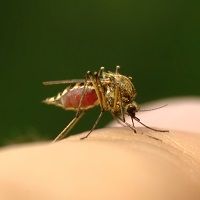Zika Virus Linked to Three Deaths in Venezuela
Complications and long-term impacts of the Zika virus are unknown, but three deaths have just been tied to the disease.

Complications and long-term impacts of the Zika virus are unknown, but three deaths have just been tied to the disease.
The first Zika cases in Venezuela were reported in November 2015. The state-run newspaper, Correo Del Orinoco, reported that there have been 319 confirmed Zika virus cases in the nation as of February 11.
President Nicolas Maduro said that three people died in Venezuela from complications associated with the Zika Virus, CNN reported on February 12. In addition, 68 patients have been hospitalized due to problems caused by the mosquito-borne illness.
There is no preventive vaccine or specific treatment for Zika. However, officials are pushing for them and at least one pharmaceutical company is taking steps to make a vaccine a reality.
- MD Magazine is on Facebook, Twitter, Instagram, and LinkedIn!
It was on February 1 that the World Health Organization (WHO) declared an international public health emergency for Zika. The next day, Dallas officials confirmed the first sexually transmitted case, which was also the first locally transmitted case in the United States. Shortly after that, Florida governor declared a public health emergency for multiple diagnoses in the Sunshine State. In the wake of all of this, President Obama announced a proposal to Congress for $1.8 billion to combat the disease.
Thirty countries and regions currently have active Zika transmission, according to the Centers for Disease Control and Prevention (CDC):
- The Americas: Barbados, Bolivia, Brazil, Colombia, Costa Rica, Curacao, Dominican Republic, Ecuador, El Salvador, French Guiana, Guadeloupe, Guatemala, Guyana, Haiti, Honduras, Jamaica, Martinique, Mexico, Nicaragua, Panama, Paraguay, Puerto Rico, Saint Martin, Suriname, US Virgin Islands, and Venezuela
- Oceania/Pacific Islands: American Samoa, Samoa, and Tonga
- Africa: Cape Verde
Zika is especially dangerous to pregnant women. The virus is strongly believed to cause microcephaly — a condition where infants are born with smaller-than-normal brain and heads, which is then linked with vision-threatening problems. Officials have advised women in certain countries to avoid pregnancy for up to two years.
In more bad news about Zika, the CDC reported that two miscarriages and two newborn deaths occurred as a result of the virus. All four of the mothers had clinical signs of the disease during the first trimester, but not at the time of miscarriage or delivery. Also, a 68-year-old man who was infected with Zika in 2014 had traces of the virus in his semen both 27 and 62 days after the initial signs of symptoms.
Also on MD Magazine >>> Zika Virus: Vision-Threatening Problems Tied to Microcephaly